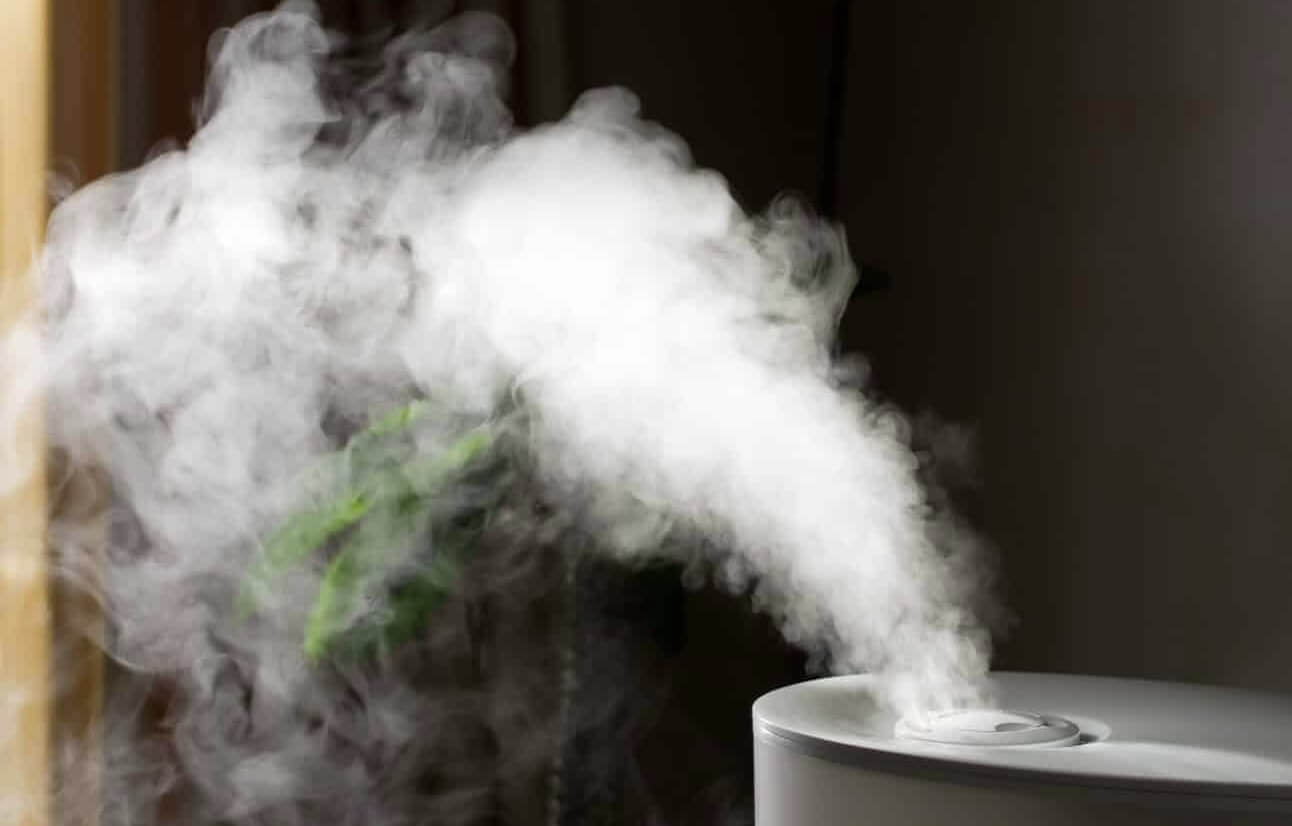By providing relief from dry air, among other benefits, a humidifier has become an essential machine for many homes.
During the day, controlling and monitoring the humidifier is easy as you enjoy the moist air. The device is also helpful during the night. But should a humidifier run all night?

After all, you may require it, especially during the dry winter nights. Since safety is your concern, then let us look at whether you should run a humidifier at night, its benefits, risks, and the precautions you should follow to guarantee your safety.
To answer your concern, Yes. It is safe to leave on a humidifier all night. However, you must take a few precautions to ensure safety while using it.
Contents
What makes a humidifier safe to run all night?
There are a couple of factors to keep in mind before you decide to run a humidifier throughout the night.
1. Operational capability
Humidifiers are handy appliances that come with a run time, making them highly functional even at night.
For instance, finding a humidifier with a 24-hour run time can be quite efficient and safe.
2. Portability and automation
Most humidifiers are portable, allowing you to move them to wherever you intend to spend the night.
They are also fitted with controls to help you make the correct settings. This promotes safe and high-quality indoor air for your home.
Most humidifiers also come with automatic shut-off settings, giving you more power to set it for the night with reduced monitoring.
3. Reliability
Humidifiers can be used to benefit an entire household, including children.
There are different types of humidifiers for all room sizes, including baby rooms, for maximum safety.
Benefits of a humidifier while sleeping
Running a humidifier at night can provide you with several benefits. They include:
1. Better sleep
Dry air can cause your respiratory tract to dry up, leading to snores and restlessness. By running a humidifier, you maintain the ideal humidity for sleeping at about 40%-60%.
Your sinus and throat also remain moist, leading to less snoring and better sleep. This is different compared to an air purifier, which only purifies the air but doesn’t moisturize it.
2. Skin protection
Skin plays an important role in warding off bacteria and pollutants, keeping you healthy. Exposing it to dry night air can lead to chirped lips and itchy skin causing you discomfort.
By sleeping with a humidifier every night, you maintain moisture in the air leaving your skin hydrated and functioning optimally.
3. Keeping off germs
Dry air in a home provides prime ground for spreading germs, which can lead to illnesses and several hospital visits.
You spend many hours in one room at night, making you susceptible to these germs.
A humidifier can raise moisture levels at night, reducing the movement of germs and effectively decreasing the spread of illnesses like colds and influenza.
For the best protection against germs, consider using a humidifier and air purifier combo.
Risks of a humidifier running at night
Are there any risks of sleeping with a humidifier all night? Well, there are a few risks that come with running a humidifier at night. These risks include:
1. Excess moisture
While moist air is good for optimal health, running a humidifier all night increases the probability of releasing excess moisture into the air.
This environment can encourage the growth of bacteria and mold. Viruses are also known to spread quicker in humid conditions, and all these germs can lead to serious health issues.
2. Dry tank
It is easy to forget to add more water to the humidifier tank for the night, especially if you had been running it all day, making it inefficient for the night.
Precautions to take when sleeping with a humidifier
You should take certain precautions to eliminate any risks so you can leave the humidifier on while you sleep.
1. Clean
A clean humidifier will promote good health, while a dirty one will spread germs, cause illnesses, and produce a bad odor. A humidifier requires a regular cleaning routine, preferably every 3 days.
You will need to unplug it from the power source, empty the water from the tank, clean it as per the manufacturer’s instructions, and refill it if you intend to run it the next night.
Change the filters as well if they tend to get dirty frequently, and follow the manufacturer’s advice on installation to avoid damage.
2. Choose the right spot
If you decide to leave a humidifier on all night, choosing a good spot for the machine is important. This will help prevent accidents such as someone tripping over the power cord in the dark.
The best spot should be waterproof and a few feet above the ground. It should also look away from any electrical outlets to avoid moisture build-up that would lead to a short circuit or rust. This guide can help you with humidifier placement in the bedroom.
3. Humidity monitoring
The efficiency of a humidifier highly depends on monitoring your home humidity levels. Acquiring a humidifier with a thermostat or a hygrometer will give you accurate humidity levels in your home.
With the right information, you can then leave the humidifier on for the night to avoid high moisture levels in the air.
4. Use the recommended water
Use distilled or bottled water for your humidifier. Do not use tap water as it contains minerals that can build up on the inside of the machine.
Such buildups act as an incubator for mold and bacteria, which are harmful to your health.
In conclusion
If you are still wondering, “Should I sleep with a humidifier on at night?” The answer is yes. Running a humidifier at night is safe and has great benefits, including better sleep through reduced snoring and restlessness.
It also promotes good health by keeping away pollutants and other ill-health-causing germs that thrive in dry air.
By following the precautions above, you should feel confident that your humidifier will turn your dry nights into the most peaceful times in all seasons.
